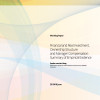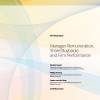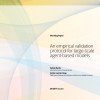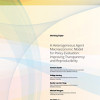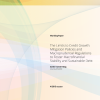This is a brief overview of the literature on corporate governance, ownership and firm performance. We cover different strands related to financialization, corporate ownership structure, stakeholders and shareholders, manager remuneration schemes, and share repurchases. Although this text should not be construed as a full literature review, we discuss how to use the empirical evidence to […]
